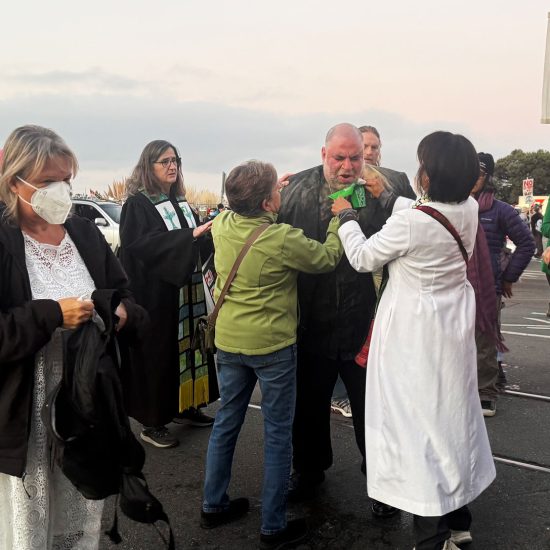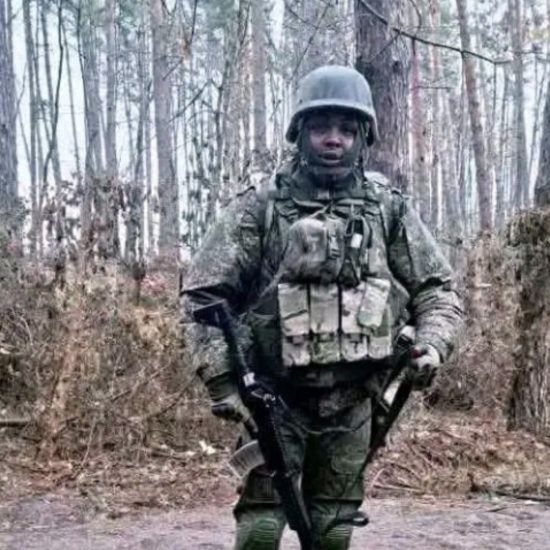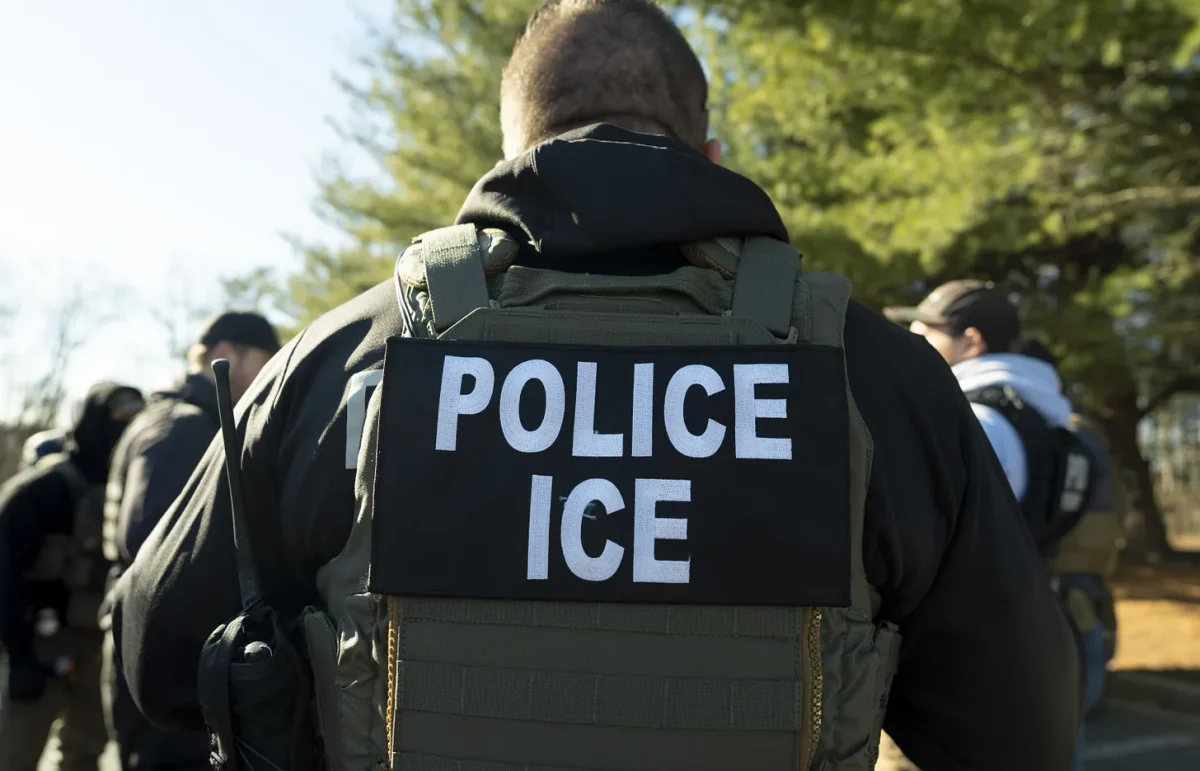
NOTE: This piece was originally published at our Substack newsletter A Public Witness.
A coalition of Quakers, Baptists, and Sikhs won round one in faith-based litigation against the Trump administration. In a 59-page ruling on Monday (Feb. 24), U.S. District Judge Theodore Chuang issued a preliminary injunction to bar Immigration and Customs Enforcement agents or Customs and Border Protection agents from conducting warrantless raids in or near congregations affiliated with the Cooperative Baptist Fellowship, several Quaker groups, and a Sikh Temple in Sacramento, California.
The ruling came in the first of two cases filed by religious groups seeking to protect houses of worship from immigration raids after the Trump administration rescinded a policy barring operations by ICE or border agents in “sensitive” or “protected” places like houses of worship and schools. The Quakers first filed this suit on Jan. 27, with the Baptists and Sikhs joining several days later. Earlier this month, 27 other religious groups filed a similar lawsuit, including several mainline Protestant denominations, some Jewish groups, and multiple state councils of churches. However, those groups are not yet protected since Chuang limited his preliminary injunction to just the plaintiffs in his court. But he gave the injunction to block ICE while the case is pending since he found it likely the plaintiffs will succeed on the merits.
“Today’s ruling is a powerful validation of the values that have defined the Cooperative Baptist Fellowship — a steadfast commitment to religious liberty, local church autonomy, and the clear separation of church and state,” CBF Executive Coordinator Paul Baxley said after the ruling. “For decades, our congregations have faithfully engaged in ministry among immigrants and refugees, offering a bold and courageous witness to the remarkable and relentless love of Christ. This decision reinforces our effort to restore the sensitive location protections that have allowed our congregations to worship and minister freely. While our work continues, we celebrate this victory as a testament to the bold faith that rises from freedom rather than coercion.”
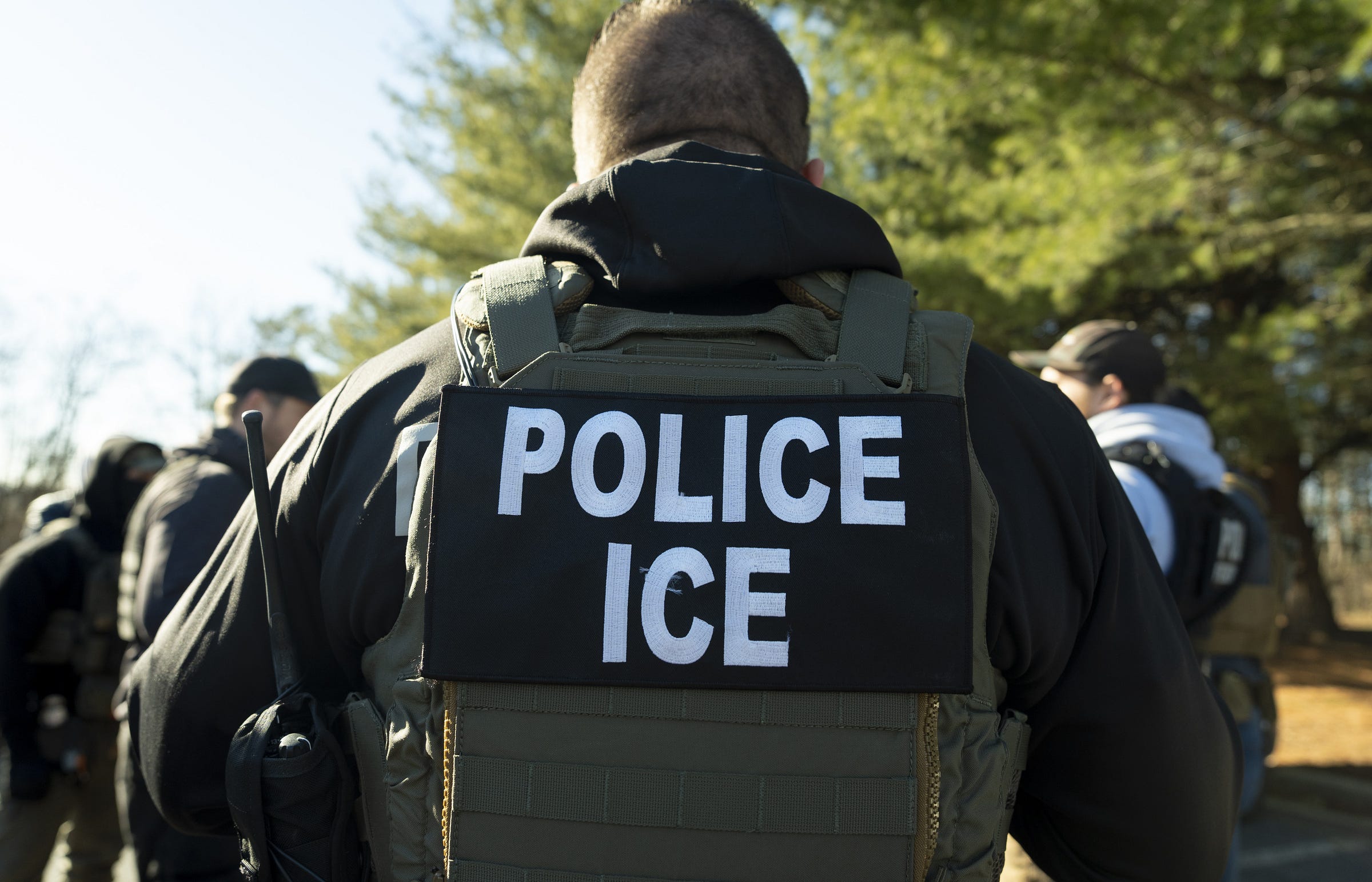
A U.S. Immigration and Customs Enforcement officer listens during a briefing on Jan. 27, 2025, in Silver Spring, Maryland. (Alex Brandon/Associated Press)
Chuang, who was nominated to the federal bench by President Barack Obama after having served as deputy general counsel for Homeland Security during the Obama administration, noted he was not yet ruling officially on the First Amendment or Religious Freedom Restoration Act claims of the plaintiffs. However, he wrote that the new Trump administration policy’s “lack of any meaningful limitations or safeguards on such activity likely does not satisfy these constitutional and statutory requirements as to plaintiffs.” He added that “a return to the status quo is therefore warranted until the exact contours of what is necessary to avoid unlawful infringement on religious exercise are determined later in this case.”
“The substantial burden that the 2025 policy has placed on plaintiffs is far from speculative and is already occurring,” Chuang wrote. “It is reasonable to expect that such enforcement actions will occur at plaintiffs’ place of worship where DHS specifically stated in its press release announcing the 2025 policy that ‘criminals will no longer be able to hide in America’s schools and churches to avoid arrest.’”
In addition to granting the preliminary injunction, Chuang also addressed other issues. Homeland Security claimed the religious groups lacked standing, but the judge outlined why he rejected such arguments since the communities demonstrated they had experienced injury that is directly traceable to the new policy.
In his ruling, Chuang noted ways that the plaintiff religious communities were already impacted by the Trump administration move. This included congregations where people — including those with legal status — noted they were worried about attending worship, English as Second Language courses, or other gatherings. The judge highlighted a “particularly stark example” of a CBF congregation where the ESL program dropped from about 30 people attending to just 10 after the new policy announcement. Additionally, as the judge noted while including a quote from the original complaint, ICE’s presence would be particularly problematic for a Quaker congregation: “In light of Quakers’ pacifist views, the presence of armed law enforcement officers in or near meeting houses is ‘inconceivable and contrary to’ Quaker faith and harms Quaker religious practices by hindering attendees’ ability to connect with God.”
“Plaintiffs have provided evidence that the willingness of their congregants to attend worship and participate in ministry services is presently being chilled, and that, particularly at CBF and the Sikh Temple, attendance at such activities has already declined,” Chuang added. “Plaintiffs have thus shown that religious exercise is being hindered by the 2025 policy for entire congregations, including United States citizens and immigrants with legal status, whose ability to worship is undermined by such reduced participation. In contrast, DHS has provided no facts demonstrating how its interest, in increased immigrant enforcement or otherwise, would be materially and adversely impacted by an injunction.”
While Chuang ruled that the plaintiffs in the case showed the harm to their religious communities, he wrote that this might not be true for other faith groups and some faith groups might not share the religious concerns about ICE operations. Thus, he limited his preliminary injunction only to houses of worship affiliated with the plaintiffs. It is possible that a final ruling in the case could apply more broadly, but that is likely months or longer away.
Sarah Gillooly, general secretary of Baltimore Yearly Meeting of the Religious Society of Friends, praised the ruling: “For over 300 years, Quakers have been committed to the fundamental right of anyone and everyone to worship freely. Nobody should be afraid of attending a Quaker Meeting or any other house of worship. We are grateful that the court’s decision reflects the importance of these core rights and will not let the government infringe upon them.”
After the ruling, CBF quickly created posters for its congregations to post to ensure they are protected by the injunction. CBF congregations don’t generally include the denominational label in their name or the denominational logo on their buildings or signs. So while some Baptist churches in a town might currently be fair game for ICE agents, another could be legally off limits.
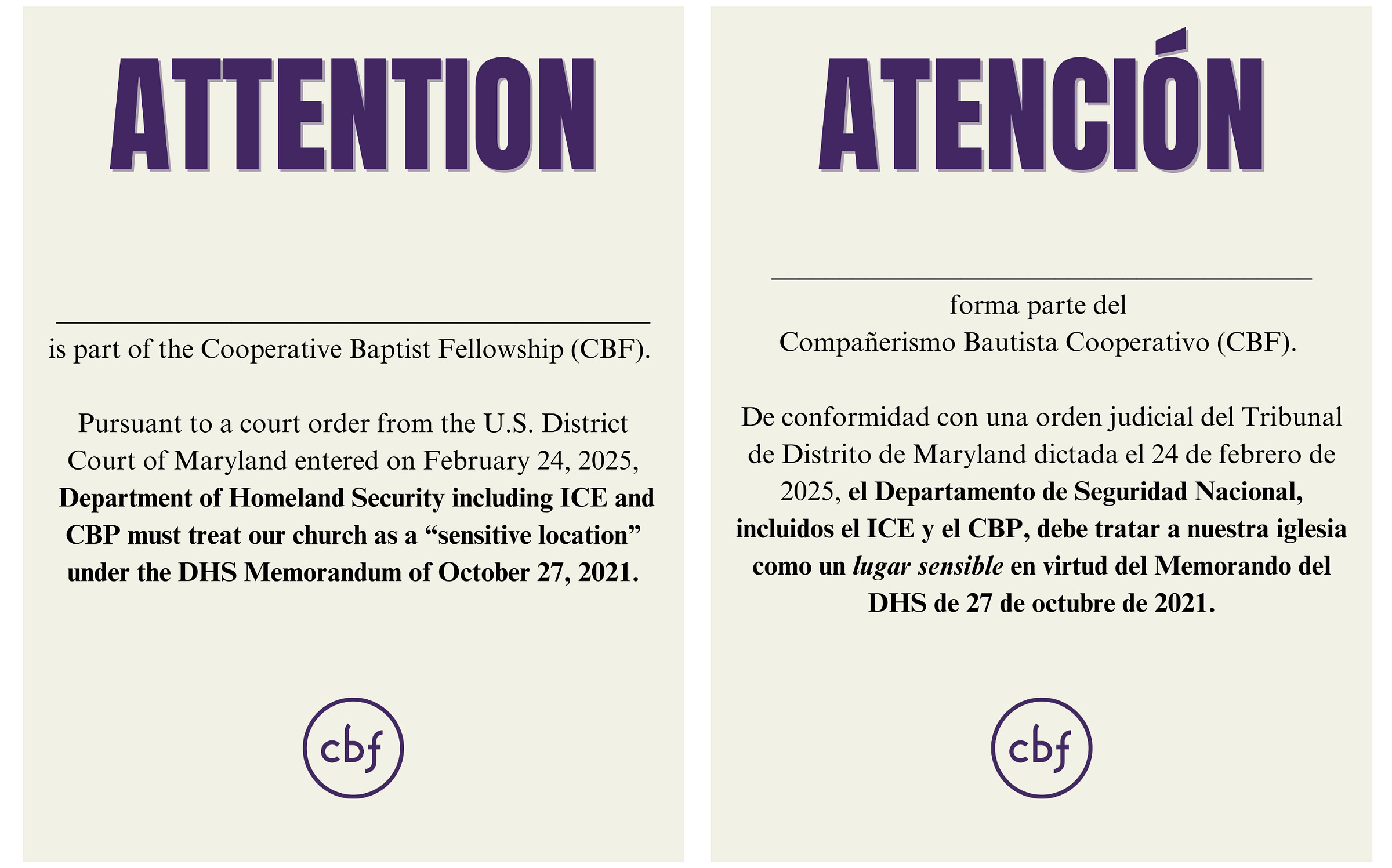
The 27 religious groups who filed the second lawsuit to block ICE raids in churches have also requested a preliminary injunction. The judge in that case yesterday gave Homeland Security attorneys until March 14 to file their reply, so it could still be another month or longer until a ruling on the injunction request. However, the mere filing of their lawsuit could provide some protection since an ICE incident at a building affiliated with one of the litigant faith communities would significantly harm the government’s legal arguments. DHS focuses much of its response on highlighting the fact that none of those faith communities have been targeted yet.
An ICE operation at a Quaker or CBF church or at the Sikh Temple in Sacramento now wouldn’t just hurt the government’s case but would also be illegal. At least for now, an effort to stand up in court against the administration has restored a sense of sanctuary.
As a public witness,
Brian Kaylor

